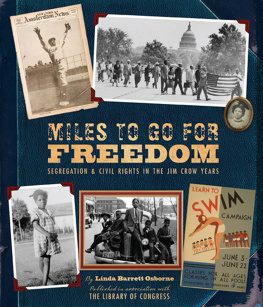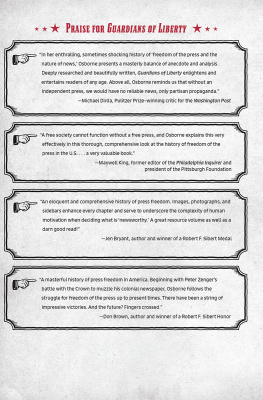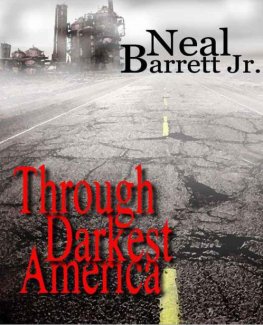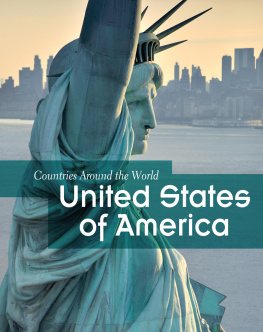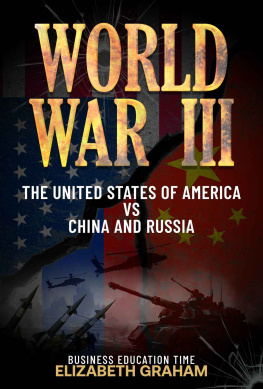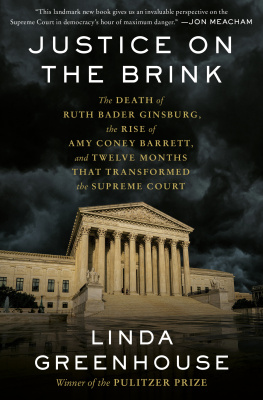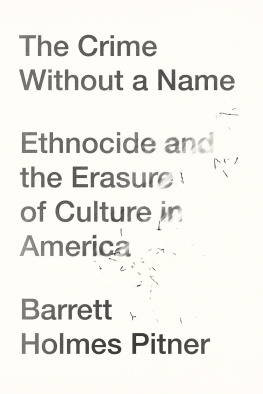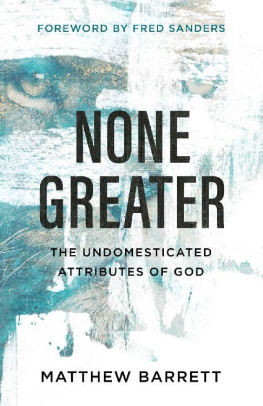Linda Barrett Osborne - Come on in, America : the United States and World War I
Here you can read online Linda Barrett Osborne - Come on in, America : the United States and World War I full text of the book (entire story) in english for free. Download pdf and epub, get meaning, cover and reviews about this ebook. year: 2017, publisher: ABRAMS, genre: History. Description of the work, (preface) as well as reviews are available. Best literature library LitArk.com created for fans of good reading and offers a wide selection of genres:
Romance novel
Science fiction
Adventure
Detective
Science
History
Home and family
Prose
Art
Politics
Computer
Non-fiction
Religion
Business
Children
Humor
Choose a favorite category and find really read worthwhile books. Enjoy immersion in the world of imagination, feel the emotions of the characters or learn something new for yourself, make an fascinating discovery.

- Book:Come on in, America : the United States and World War I
- Author:
- Publisher:ABRAMS
- Genre:
- Year:2017
- Rating:5 / 5
- Favourites:Add to favourites
- Your mark:
- 100
- 1
- 2
- 3
- 4
- 5
Come on in, America : the United States and World War I: summary, description and annotation
We offer to read an annotation, description, summary or preface (depends on what the author of the book "Come on in, America : the United States and World War I" wrote himself). If you haven't found the necessary information about the book — write in the comments, we will try to find it.
Come on in, America : the United States and World War I — read online for free the complete book (whole text) full work
Below is the text of the book, divided by pages. System saving the place of the last page read, allows you to conveniently read the book "Come on in, America : the United States and World War I" online for free, without having to search again every time where you left off. Put a bookmark, and you can go to the page where you finished reading at any time.
Font size:
Interval:
Bookmark:



Names: Osborne, Linda Barrett, 1949 author.
Title: Come on in, America : the United States and World War I / Linda Barrett Osborne.
Description: New York : Abrams Books for Young Readers, 2017. | Includes bibliographical references and index.
Identifiers: LCCN 2016036830 | ISBN 9781419723780
eISBN: 9781683350583
Subjects: LCSH: World War, 19141918United StatesJuvenile literature. | World War, 19141918Juvenile literature.
Classification: LCC D522.7 .O73 2017 | DDC 940.3/73dc23
LC record available at https://lccn.loc.gov/2016036830
Book design by Pamela Notarantonio
For image credits, see .
All rights reserved. No portion of this book may be reproduced, stored in a retrieval system, or transmitted in any form or by any means, mechanical, electronic, photocopying, recording, or otherwise, without written permission from the publisher.

ABRAMS The Art of Books
115 West 18th Street, New York, NY 10011
abramsbooks.com


Font size:
Interval:
Bookmark:
Similar books «Come on in, America : the United States and World War I»
Look at similar books to Come on in, America : the United States and World War I. We have selected literature similar in name and meaning in the hope of providing readers with more options to find new, interesting, not yet read works.
Discussion, reviews of the book Come on in, America : the United States and World War I and just readers' own opinions. Leave your comments, write what you think about the work, its meaning or the main characters. Specify what exactly you liked and what you didn't like, and why you think so.

